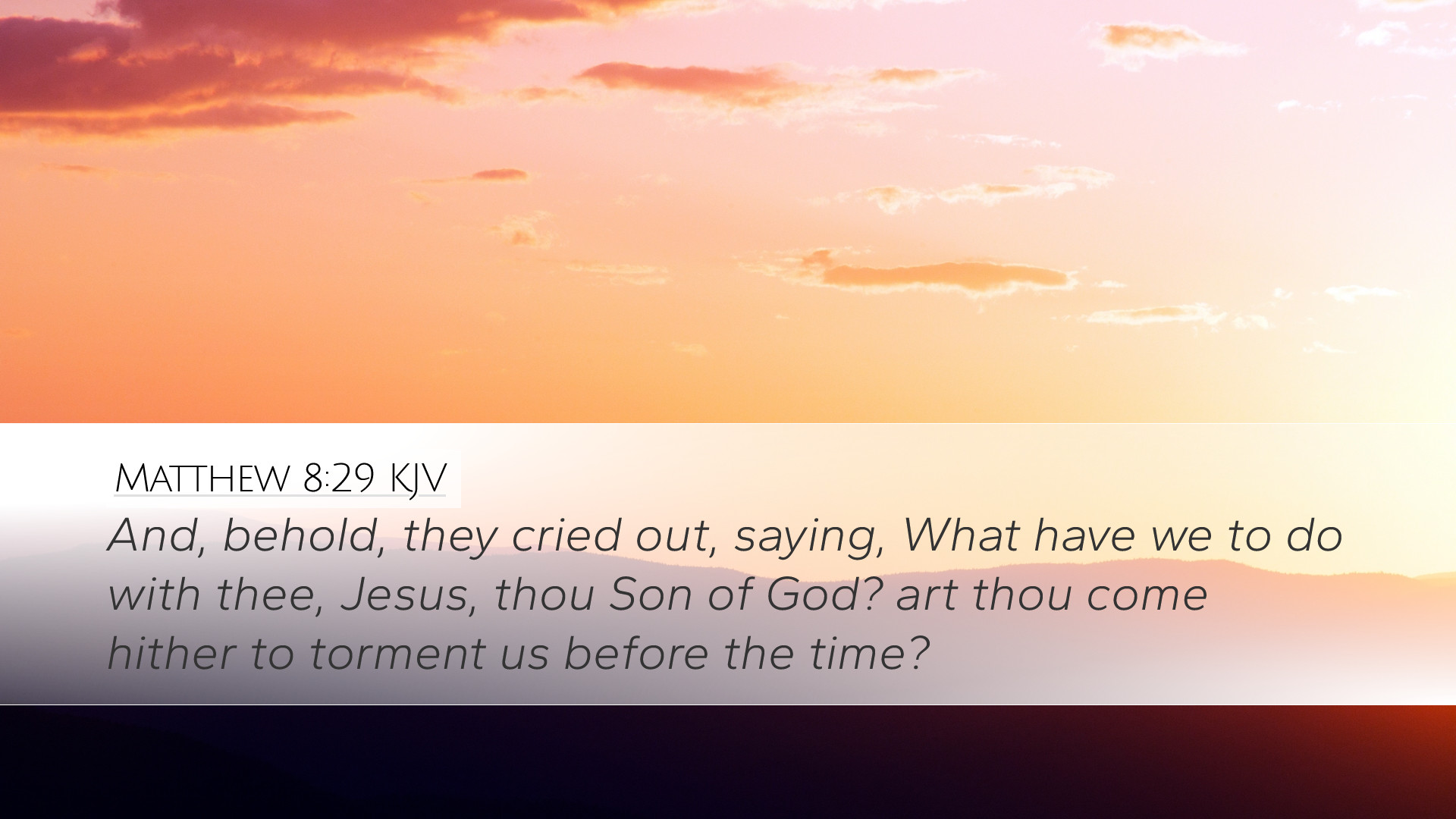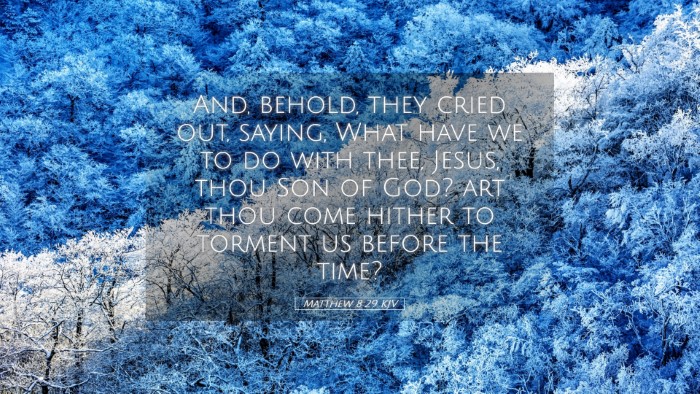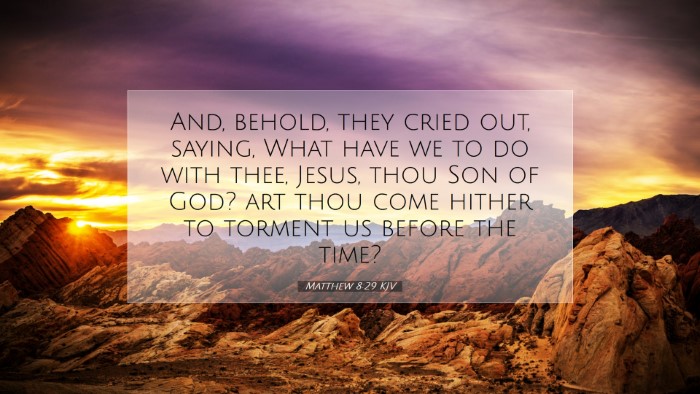Commentary on Matthew 8:29
Verse Reference: Matthew 8:29 - "And behold, they cried out, saying, What have we to do with thee, Jesus, thou Son of God? Art thou come hither to torment us before the time?"
Contextual Overview
This verse occurs in the midst of Jesus’ ministry, where He demonstrates authority over nature, diseases, and demonic forces. The setting is particularly significant as it highlights the confrontation between Jesus and demons, opening a window into the spiritual reality that underlies the physical world.
Exegesis and Insights
-
Demonic Recognition:
The demons recognize Jesus immediately as the "Son of God." This acknowledgment is profound: it showcases the high Christology present in Matthew’s Gospel. Albert Barnes notes that the admission of the demons serves as a contrast to those who were skeptical of Jesus' divine identity. Their understanding of who Jesus is reveals a significant theological truth - that even spiritual beings acknowledge His rightful authority.
-
Question of Intent:
The question posed by the demons, "What have we to do with thee?" reflects their awareness of the potential consequences of Jesus’ presence and power. Adam Clarke elaborates on this dialogue by indicating that the demons were aware of their impending judgment. Their inquiry expresses both fear and a desperate attempt to negotiate their fate. Here, the tone indicates a recognition of the authoritative power of Jesus and a tacit understanding of the spiritual hierarchy.
-
Foreknowledge of Judgment:
The phrase, “Art thou come hither to torment us before the time?” suggests that the demons understood there was a defined period for their judgment, which they refer to as "the time." Matthew Henry notes that this acknowledgment of a future judgment hints at the theological doctrine of eschatological accountability. It implies that there will be a comprehensive reckoning where evil will be finally dealt with, ultimately affirming God’s justice.
-
Illustration of Authority:
This encounter illustrates the authority of Jesus over demonic forces and affirms the overarching theme of His dominion throughout the Gospels. Both Henry and Barnes articulate that such confrontations serve not only to declare Jesus’ power but also to offer a glimpse into the spiritual warfare present in the world.
Theological Implications
The implications of this verse extend beyond the narrative itself, prompting theological reflection on the nature of evil, authority, and judgment. Understanding that the demons recognized Jesus as the "Son of God" contributes to Christological discussions regarding His divine status and the nature of cosmic conflict.
Spiritual Warfare
The passage serves as a stark reminder of the presence of evil and the opposition to Christ’s mission. The acknowledgment of Jesus by these spirits underlines the reality of spiritual warfare that believers face, which is absent from everyday visibility yet profoundly impacts the material world.
Applications for Believers
-
Awareness of Spiritual Realities:
Believers should develop an awareness of the spiritual battles that unfold in their lives. This suggests a need for vigilance and reliance on Christ’s authority.
-
Confidence in Christ's Power:
The text encourages believers to place confidence in the power of Jesus over any form of evil or oppression. This power is not only historical but actively present in the lives of believers today as they engage in the ongoing struggle against spiritual forces.
-
Hope in Divine Justice:
The demons' question about judgment provides hope, reaffirming that God will ultimately confront evil. Thus, believers can find assurance in God’s ultimate plan and justice.
Conclusion
Matthew 8:29 encapsulates a critical moment where Christ’s identity and authority are declared by those who oppose Him. For pastors, students, theologians, and scholars, this passage invites deeper contemplation on the nature of Jesus as the Son of God, the acknowledgment of evil's existence, and the reality of divine authority amidst spiritual conflict. The insights from public domain commentaries further enrich the understanding of this verse, providing a well-rounded theological perspective that emphasizes understanding scripture within its broader cosmic and eschatological implications.


